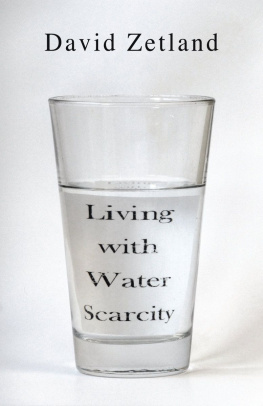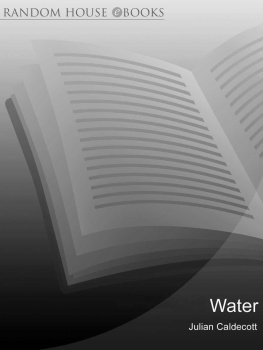Just Add Water

Oxford University Press is a department of the University of Oxford. It furthers the Universitys objective of excellence in research, scholarship, and education by publishing worldwide. Oxford is a registered trademark of Oxford University Press in the UK and certain other countries.
Published in the United States of America by Oxford University Press
198 Madison Avenue, New York, NY 10016, United States of America.
Oxford University Press 2020
All rights reserved. No part of this publication may be reproduced, stored in a retrieval system, or transmitted, in any form or by any means, without the prior permission in writing of Oxford University Press, or as expressly permitted by law, by license, or under terms agreed with the appropriate reproduction rights organization. Inquiries concerning reproduction outside the scope of the above should be sent to the Rights Department, Oxford University Press, at the address above. You must not circulate this work in any other form and you must impose this same condition on any acquirer.
You must not circulate this work in any other form and you must impose this same condition on any acquirer.
Library of Congress Cataloging-in-Publication Data
Names: Larson, Rhett, author.
Title: Just add water : solving the worlds problems using its most
precious resource / Rhett B. Larson.
Description: New York, NY : Oxford University Press, [2020] | Includes bibliographical references and index.
Identifiers: LCCN 2019047239 (print) | LCCN 2019047240 (ebook) | ISBN 9780190948009 (hardback) | ISBN 9780190948030 (epub) | ISBN 9780190948016 (online)
Subjects: LCSH: Water securitySocial aspects. | Water-supplySocial aspects. | Social problems.
Classification: LCC HD1691 .L37 2020 (print) | LCC HD1691 (ebook) | DDC 333.91dc23
LC record available at https://lccn.loc.gov/2019047239
LC ebook record available at https://lccn.loc.gov/2019047240
Note to Readers
This publication is designed to provide accurate and authoritative information in regard to the subject matter covered. It is based upon sources believed to be accurate and reliable and is intended to be current as of the time it was written. It is sold with the understanding that the publisher is not engaged in rendering legal, accounting, or other professional services. If legal advice or other expert assistance is required, the services of a competent professional person should be sought. Also, to confirm that the information has not been affected or changed by recent developments, traditional legal research techniques should be used, including checking primary sources where appropriate.
(Based on the Declaration of Principles jointly adopted by a Committee of the
American Bar Association and a Committee of Publishers and Associations.)
You may order this or any other Oxford University Press publication
by visiting the Oxford University Press website at www.oup.com.
For Becky, my oasis.
Contents
The turning point of my life began with one drop of water. My family has lived, farmed, ranched, mined, and built in the arid southwestern United States for generations. I grew up in Yuma, Arizonaa farming community located where California, Arizona, and Mexico meet, and where the Colorado River crosses the border between the United States and Mexico. I was raised in communities where we constantly talked of, worried about, and prayed for water. But the drop of water that changed the life of this desert dweller fell on my head on a tropical island, on September 22, 1998, in the Dominican Republic.
I was a nineteen-year-old missionary living in Santo Domingo. I had been living in the Dominican Republic for nearly eight months, but most of that time was spent in a small fishing village in the northern part of the island. I had only been in Santo Domingo for a few weeks when we heard rumors of an approaching hurricane on September 21. A friend and fellow missionary had watched the news and stopped by our small apartment to warn us. The apartment was on the bottom floor of a three-story cinder-block building that lay at the foot of large cliffs. Built in and around these caves were hundreds of small colorful homes made of wood, tin, and dried palm bark.
We climbed through the cliffs of our barrio. We warned people to leave their homes and go to the school or the church, which were located on higher ground and made of solid concrete and cinder block. People said they would not leave their homes, either out of fear of abandoning their home to looters or because of confidence that hurricanes always just brushed the island but rarely made landfall. The last major hurricane to have made landfall in the Dominican Republic had been Hurricane David, twenty years earlier.
We walked to a small market run out of a neighbors home. As a teenager from the desert, I had no experience with anything like a hurricane or how to prepare for it. I bought a one-liter carton of orange juice and one small package of animal crackers as my emergency supplies. As we walked back to our apartment that evening, I felt the first drop of water on my head. It was quickly followed by another. And another.
Within a short time, four young missionaries were huddled in our small apartment as a storm unlike anything I could have imagined raged outside. The wind screamed ceaselessly through the whole night, louder even than the pounding rain. We had no electricity, which was not uncommon, but the darkness was so profound that it was somehow more all-encompassing than the noise. We wrapped a few belongings in plastic trash bags as the water in our apartment rose, from inches to feet. We debated trying to run to the church or school through the storm. We debated trying to climb onto the roof. We debated in voices yelling above the din and yelling out our panic. And then we yelled suddenly into complete silence and sunlight.
We waded our way out of the door and blinked away the dazzling bright tropical sky. Animal carcasses floated down the rivers that had been streets the day before. We climbed our way up the hills in our barrio to help our friends and neighbors as they began to repair roofs and salvage belongings. As we climbed, I look up and around. Above us was an azure sky of Caribbean perfection. Around us on all horizons were black curtains streaked with lightning.
We were in the eye. We ran through the flooded streets, trying to help as many of our neighbors as possible make it to the church or the school before the storm came back. Before we reached safety, the wind hit from the other direction with the force of a bomb. The rain fell in torrents again. The sun was blocked out, and we crashed and slid our way toward the rushing waters of the street below. We never made it to safety. The rest of the storm was spent in paniccombating the deluge.
That night, as the waters began to slowly recede, I lay down and sobbed. I sobbed until my ribs hurt. Then, out of the night and from somewhere in the city, an epically huge car sound system began to play. The music echoed over the whole city. It was Bob Marleys No Woman, No Cry. As he reached the chorus and chanted Everythings gonna be alright, I sat up and wrapped my arms around my knees. I wiped my eyes and mastered myself.
In the coming days and weeks, we worked in rescue and rebuilding. We had problems I could have expectedhomelessness, sickness, injuries, theft. But the most difficult problem was how to prioritize which problems to address first. One thing I knew for certain was that the harder I worked, the sicker and thirstier I got. I felt like I was dying of thirst in water up to my waist. One day, we cut apart a large tree that had crushed a home. When we finished, the family said, Please let us give you something for helping us. All I thought was: Water, please let it be water. They returned with plates full of boiled yucca, which must be the driest food on Earth. I gratefully choked it down. And I really regretted buying animal crackers and orange juice instead of water.

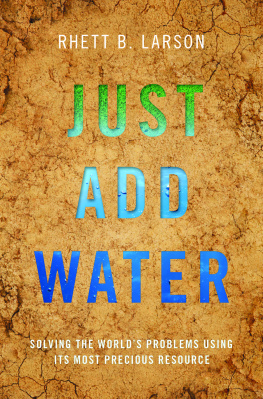
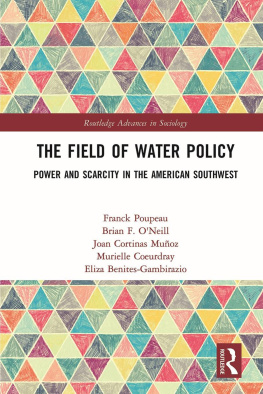

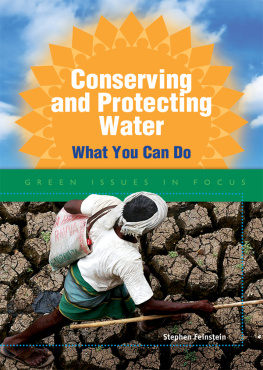
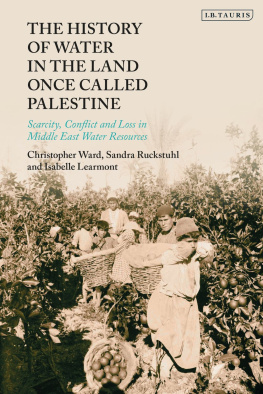
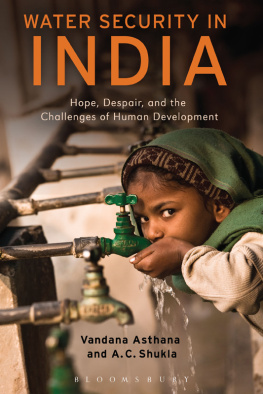

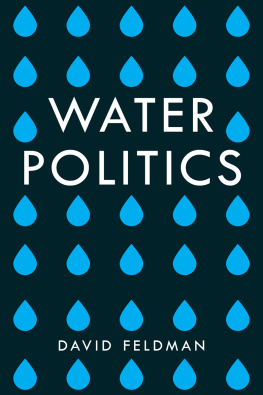
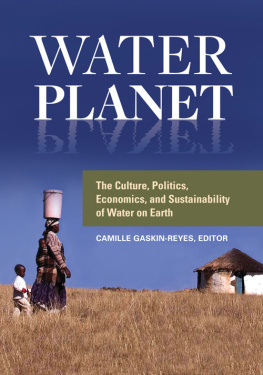
![David E Newton] - The global water crisis : a reference handbook](/uploads/posts/book/104432/thumbs/david-e-newton-the-global-water-crisis-a.jpg)
